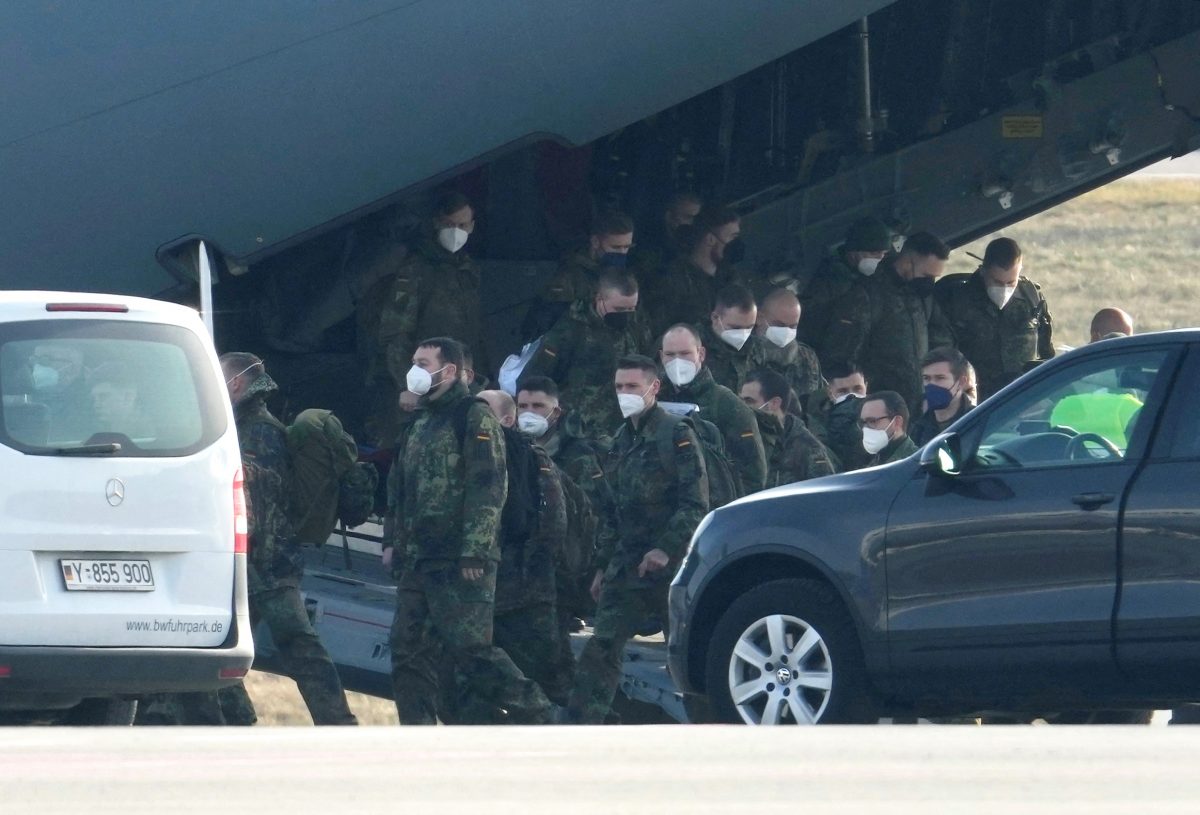KAUNAS AIRPORT, Lithuania, (Reuters) – A German military aircraft carrying troop reinforcements landed in Lithuania today, the first of several planned NATO deployments amid fears in the region about a possible Russian invasion of Ukraine.
The A400M airplane carried around 70 soldiers of what is expected to grow to a 360-strong German deployment, which comes on top of existing NATO forces in the region, a spokesperson for the alliance’s enhanced forward presence battlegroup said.
The new deployments include reconnaissance and artillery troops and medics from units throughout Germany, as well as around 100 howitzer and other vehicles, with arrivals expected to continue throughout this week.
“It’s a strong signal that Germany is willing and capable of reinforcing the battlegroup immediately as needed,” Lieutenant Colonel Daniel Andrae, German commander of the NATO troops in Lithuania, told reporters.
“I am really happy to have the guys with me, and be ready for everything which (could) come up,” Andrae added. The added soldiers will stay as long as they are needed, he said.
German Chancellor Olaf Scholz was due to arrive in Kyiv on Monday to meet Ukrainian President Volodymyr Zelenskiy in a bid to show solidarity and help avert war. On Tuesday, Scholz will fly to Moscow to see Russian President Vladimir Putin.
Since 2017, NATO has deployed battlegroups in Baltic states of Lithuania, Latvia and Estonia as well as Poland, all sharing borders with Russia, in response to Moscow annexing the Crimea peninsula from Ukraine in 2014.
Totalling 5,000 soldiers, the battlegroups are led by Germany, Canada, Britain and the United States.
Britain is also preparing to reinforce the British-led NATO battlegroup in Estonia, Prime Minister Boris Johnson said last week.
German soldiers comprise about half of the 1,100-strong battlegroup already present in Lithuania, which includes troops from Belgium, the Czech Republic, Luxembourg, the Netherlands and Norway.
“Germany’s decision to send more troops to Lithuania is an important and timely decision, which shows NATO’s solidarity, unity and commitment to collective defense,” said Lithuanian Defense Minister Arvydas Anusauskas.






